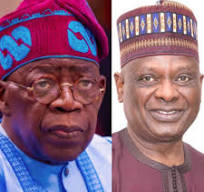ABUJA — In a decisive move to align government procurement processes with prevailing economic conditions, the Bureau of Public Procurement (BPP) has officially announced the upward revision of public procurement thresholds across all tiers of government.
The Director-General of the Bureau, Mr. Mamman Ahmadu, disclosed the development during a media briefing in Abuja, stating that the adjustment is a response to Nigeria’s current fiscal realities, inflationary pressures, and exchange rate volatility, which have significantly altered the cost structure of public projects and contracts.
According to the BPP, the revised thresholds are aimed at improving the efficiency and responsiveness of public procurement while ensuring that Ministries, Departments, and Agencies (MDAs) are able to implement projects without unnecessary bureaucratic delays. The new thresholds take into account market dynamics, enabling quicker decision-making in the award of contracts and procurement of essential goods and services.
“The existing procurement limits no longer reflect the market realities. It has become imperative to adjust these figures in line with economic indicators so that government agencies can function effectively without being hindered by outdated financial limits,” Ahmadu said.
He emphasized that the changes were made in line with the provisions of the Public Procurement Act, 2007, following broad consultations with stakeholders, including representatives from federal, state, and local governments, as well as civil society organizations involved in procurement monitoring.
While the Bureau did not release the full breakdown of the revised thresholds during the briefing, it assured that the details would be circulated to all MDAs through official communication and would be uploaded to the BPP’s website for public access and transparency.
Analysts have described the move as timely, considering the inflationary spike in project costs and currency depreciation over the last year. With capital projects across the country facing challenges due to rising material and operational costs, the revision is expected to accelerate the execution of infrastructure, health, and education projects under the Tinubu administration’s Renewed Hope Agenda.
The BPP reiterated its commitment to transparency, accountability, and due process in the procurement space, stating that while thresholds have been revised, compliance with procurement rules remains non-negotiable.
“All government agencies must continue to adhere strictly to due process. Raising the thresholds does not imply a relaxation of standards. Our job remains to ensure that every kobo spent delivers value to the Nigerian people,” the DG added.
This development marks a strategic shift in public financial management as the government seeks to streamline service delivery, promote ease of doing business, and eliminate inefficiencies in public sector spending.
4o







